Green-focused businesses ready for cooperation
How much will Japan work with Vietnam and ASEAN to help with the energy transition?
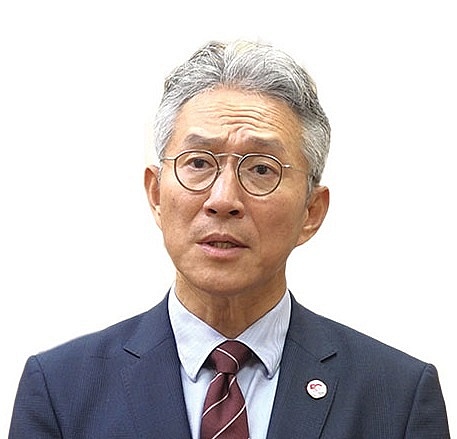 |
| Kinoshita Tadahiro, director general of Sojitz Vietnam and president of the Japanese Chamber of Commerce and Industry in Vietnam |
We highly appreciate the government and related ministries for the national green growth strategy, as well as the action plan on green energy transition and reducing carbon and methane emissions of the transportation sector. Completing the legal framework is an important factor to achieving this goal.
In the context of increasing energy demand in Asian countries, the Japanese government is ready to cooperate with ASEAN countries in the energy transition process by providing more financial and technical support for testing and applying emission-reduction technologies.
Accordingly, Japanese businesses wish to contribute to an effective energy transition in Vietnam by increasing private investment and applying deflation technologies, aiming to achieve net-zero emissions.
How do you evaluate Vietnam’s trade investment in recent times, and what are the areas of interest to Japanese businesses in Vietnam?
Currently, the prospects for investment cooperation between Japan and Vietnam are very good, as many Japanese companies, especially those exporting goods to Western countries with production facilities located in China, are often shifting their base to Vietnam.
Vietnam is considered the most promising business destination. There are two things that make Vietnam attractive to investors: political stability and relatively competitive wages for workers.
In addition, the Vietnam-Japan Joint Initiative, a policy dialogue forum between Japanese investors and relevant ministries and branches of Vietnam, has contributed to creating build an open and transparent investment and business environment in Vietnam for 20 years. At the same time, provide policy recommendations to help Vietnam improve laws and policies help create an increasingly attractive investment environment.
Japanese businesses are interested in solar power, renewable energy, and power generation using liquefied natural gas, which will also greatly contribute to Vietnam’s green growth.
The biggest current difficulty for Japanese businesses in Vietnam, as well as foreign businesses in general, is that the speed of project approval is still slow.
The Japanese Chamber of Commerce and Industry has a related committee in charge of the business investment environment, whose members are representatives from businesses. This committee often holds regular meetings and raises issues each business is having and discusses them with the government of Vietnam for appropriate solutions.
As an early investor in Vietnam, what is Sojitz interested in, especially in terms of the green sector?
We are working with Vinamilk to develop one of Vietnam’s largest cattle farm and beef processing complexes in Vinh Phuc province, that is scheduled to begin operations in June 2024.
This is the first project in the investment and cooperation plan between leading Vietnamese and Japanese corporations in high-tech agriculture, animal husbandry, and beef processing, with a total value of cooperation agreements of up to $500 million.
Sojitz Group has also invested in a number of large projects in Vietnam such as Loteco and Long Duc industrial parks in Dong Nai province; Phu My 3 thermal power plant in Vung Tau; energy consulting services and natural gas energy supply for Phu My 3 industrial park; general logistics services in Long An province; and afforestation and wood chip production and business in Cai Lan, Vung Ang, and Danang.
Sojitz Group wants to focus on investing in energy such as solar and wind; retail products from livestock and perfecting its logistics chain; and developing wood chips and wood material. We strive to promote talent exchange between Japan and Vietnam through projects to foster industrial human resource development and contribute to the sustainable development of this country.
Sojitz Group was established in 2003 on the basis of the merger of Nissho Iwai and Nichimen Groups. Currently, Sojitz has about 350 subsidiaries and 140 joint ventures with nearly 20,000 employees worldwide. In 2022, the group’s revenue and profit reached around $18.2 billion and $818 million, respectively.
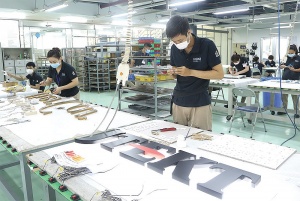 | Japanese investors weigh up options Although Japanese manufacturers may be planning to cut production abroad over the next few years, some groups are being encouraged to increase focus on the Global South to increase security and take advantage of new business environments. |
 | Japan intensifies infrastructure focus Japan is to provide fresh assistance to Vietnam to back the latter’s socioeconomic development, with a focus laid on infrastructure improvement. |
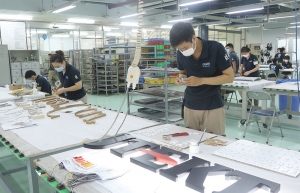 | Historic support enters new phase for Japan and Vietnam Japan’s investment in Vietnam’s new sectors will expand thanks to a new scheme currently under discussion, expected to help increase bilateral trade. |
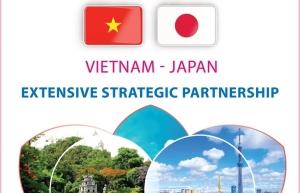 | Vietnam, Japan boast extensive strategic partnership Vietnam and Japan officially established diplomatic relations on September 21, 1973, and bilateral ties have developed in the time since and are currently at their best stage to date, developing strongly and comprehensively in all fields. |
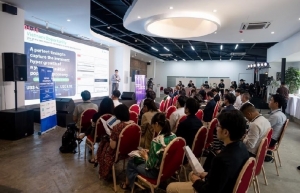 | Japanese investors tap into startups Japanese investors are growingly interested in Vietnamese tech startups to boost footprints and tap into local demand. |
What the stars mean:
★ Poor ★ ★ Promising ★★★ Good ★★★★ Very good ★★★★★ Exceptional
Related Contents
Latest News
More News
- SK Innovation-led consortium wins $2.3 billion LNG project in Nghe An (February 25, 2026 | 07:56)
- THACO opens $70 million manufacturing complex in Danang (February 25, 2026 | 07:54)
- Phu Quoc International Airport expansion approved to meet rising demand (February 24, 2026 | 10:00)
- Bac Giang International Logistics Centre faces land clearance barrier (February 24, 2026 | 08:00)
- Bright prospects abound in European investment (February 19, 2026 | 20:27)
- Internal strengths attest to commitment to progress (February 19, 2026 | 20:13)
- Vietnam, New Zealand seek level-up in ties (February 19, 2026 | 18:06)
- Untapped potential in relations with Indonesia (February 19, 2026 | 17:56)
- German strengths match Vietnamese aspirations (February 19, 2026 | 17:40)
- Kim Long Motor and AOJ Suzhou enter strategic partnership (February 16, 2026 | 13:27)

 Tag:
Tag:



















 Mobile Version
Mobile Version